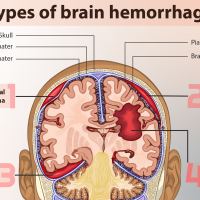Psychology 101: Emotions – Why Do We Feel the Way We Do? James-Lange Theory vs Cannon Bard Theory vs Two-Factor Theory
When we are met with sudden bursts of emotions, what comes first: the physical or mental reaction?
Since the inception of psychology, emotions have turned into an interesting chicken or the egg phenomena. When good things happen, we smile, but does smiling make us happier?
In the world of psychology and motor neurons, these questions remain unanswered, but countless theories have arisen to explain this almost unexplainable human characteristic. These theories have tried to distinguish the specific firing point within our bodies regarding these emotions, but all of them lack an explanation broad enough that can effectively describe such a diverse human race.
Emotions are a complex mixture of our physical, cognitive, and expressive behavior, but to what extent do each of these matter? Of course, when good, positive things happen to us, we feel a gut-reaction, whether that be smiling or laughing. All of these reactions happen both beneath our skin and within our neurons while also being presented outward and physically.













